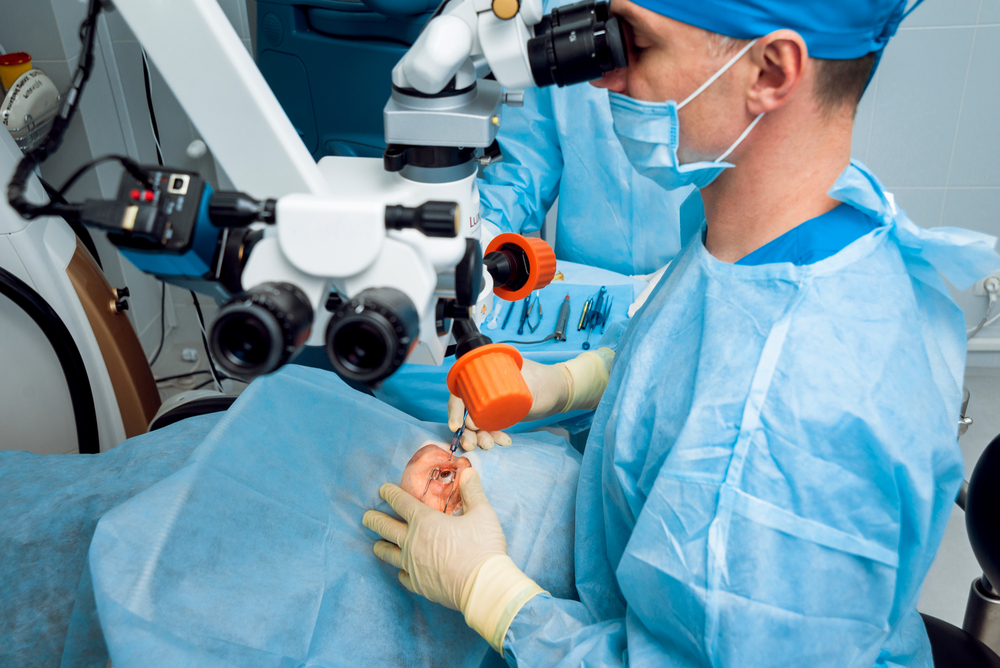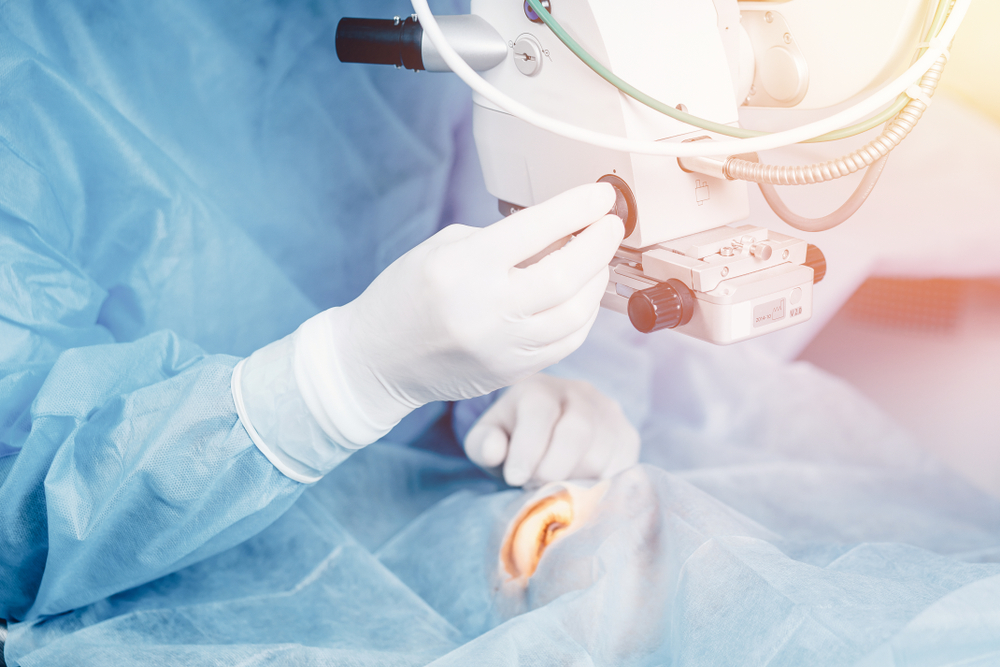Is Cataract Surgery Uncomfortable?
March 27, 2024
Cataracts are an inevitable part of aging. Cataracts cause clouding or discoloration of the lens of the eye.
In the early stages, cataracts may cause minor issues, such as frequent prescription lens changes or a need for brighter lighting while reading. Over time, cataracts can worsen and cause significant vision loss.
The only treatment for cataracts is surgery. Cataract surgery is one of the most commonly performed procedures in America, and it's very safe and effective.
Many people are concerned that the procedure will be painful and recovery will be difficult. Keep reading to learn more about cataract surgery, including what happens during the procedure and whether or not you can expect to be comfortable during it!
 What Happens During Cataract Surgery?
What Happens During Cataract Surgery?
During cataract surgery, your eye doctor uses specialized tools to make an incision in the front surface of your eye and remove the eye's cloudy natural lens. They then replace it with a clear, artificial lens.
The new lens will help correct your vision. Depending on which lens you choose, you may even be able to experience greater visual freedom than ever before.
Once the new lens is in place, the procedure will be complete. Since the incision on the front surface of your eye is so tiny, no stitches are needed, and it will naturally heal on its own during your recovery. The new lens doesn't have clouding or discoloration, so many people notice immediate changes in their vision.
Colors will appear more vivid, and you may notice that everything looks brighter. The full recovery period typically takes several weeks, and your vision will continue to improve as your eye heals.
Are you over forty and experiencing vision changes?
Is Cataract Surgery Painful?
Before starting the procedure, your eye doctor will give you special eye drops to numb your eye. This will ensure that you don't feel any pain during the procedure and you are comfortable.
Your eye doctor will use an instrument to hold your eye open during the procedure. This device doesn't hurt, but you may feel pressure, especially if your eyelids move against it.
You may also feel your eye doctor touching your face and moving instruments around near your eye. The surgery usually takes less than thirty minutes, so any discomfort or anxiety from the procedure itself will pass relatively quickly.
Immediately after surgery you won’t be allowed to drive. Your vision will be compromised by the eye shield and may be blurry from the procedure.
You should plan to have someone come with you to surgery to give you a ride home.
 Is Recovery From Cataract Surgery Uncomfortable?
Is Recovery From Cataract Surgery Uncomfortable?
Immediately after cataract surgery, you shouldn't feel any pain. Your eye may still be numb from the drops, but that will wear off within a few hours or less.
Your eye doctor will place a shield over your eye to protect it and prevent you from touching the area. You may need to wear the shield when you sleep for the first few days so you don't inadvertently rub your eye.
Most people do not notice significant discomfort after cataract surgery. Your eye may feel slightly sore, itchy, or gritty, but you'll have eye drops that will soothe the discomfort.
You may also notice that your eyes are more watery than usual, and they may look red. During the first few days after surgery, you’ll be able to do things like watch TV or read, but take a break if your eyes feel tired or your symptoms increase.
The discomfort should gradually go away over several days as your eye starts to heal. Your eye doctor will tell you when you can resume activities like driving, strenuous exercise, or returning to work.
Are you experiencing symptoms of cataracts?
Schedule a Cataract Evaluation
When Should You Call the Doctor?
You will see your eye doctor for a postoperative appointment one or two days after cataract surgery so they can check on how your eye is healing. You’ll go back for periodic follow-up appointments so your eye doctor can examine your eyes and check your vision.
For most people, cataract surgery recovery is relatively easy, with little pain or discomfort. However, after every surgical procedure, there is a risk of infection or other complications.
If you are feeling significant pain or have concerns about how well your eyes are healing, don't hesitate to call your eye doctor. You should call your eye doctor immediately if you notice symptoms such as:
- Vision loss
- Persistent pain
- Pain that gets worse over time
- Increased eye redness
- Eyelid swelling
- Light flashes or floaters in front of your eye
These symptoms may be signs of infection or problems at the surgical site. Your eye doctor can examine your eyes and prescribe appropriate treatment if necessary. 
Can Cataract Symptoms Come Back?
After cataract surgery, some people experience a condition called posterior capsule opacification (PCO). This happens when the back of the lens capsule becomes cloudy and affects vision, causing similar symptoms to cataracts.
Your eye doctor can treat this issue with a painless, five-minute outpatient procedure called a laser capsulotomy. The eye doctor uses a specialized laser to make a small opening in the lens capsule, which lets light in and restores proper vision.
Are you experiencing symptoms of cataracts? Schedule a cataract evaluation at Carroll Vision Center in Westminster, MD, today!



